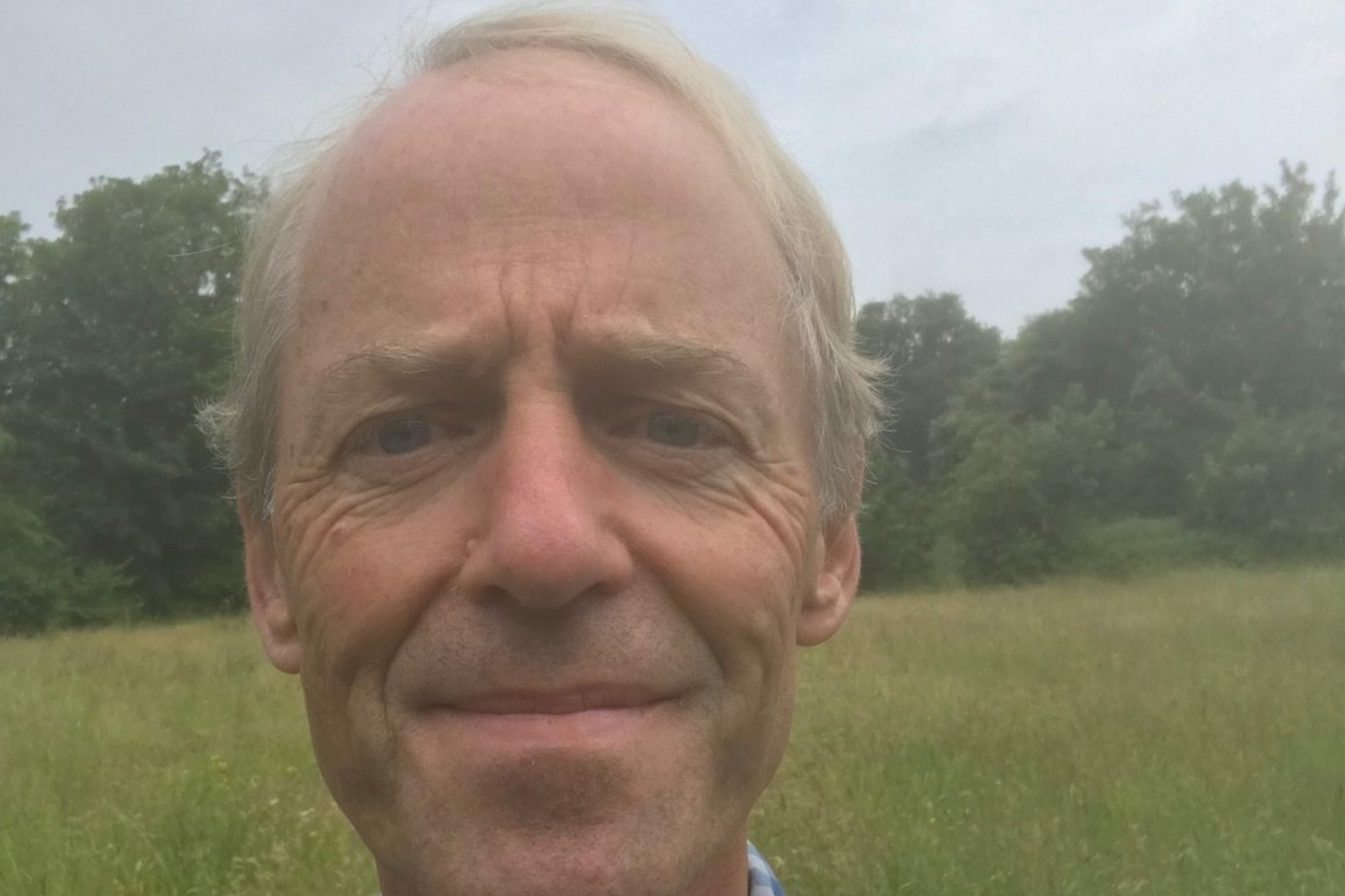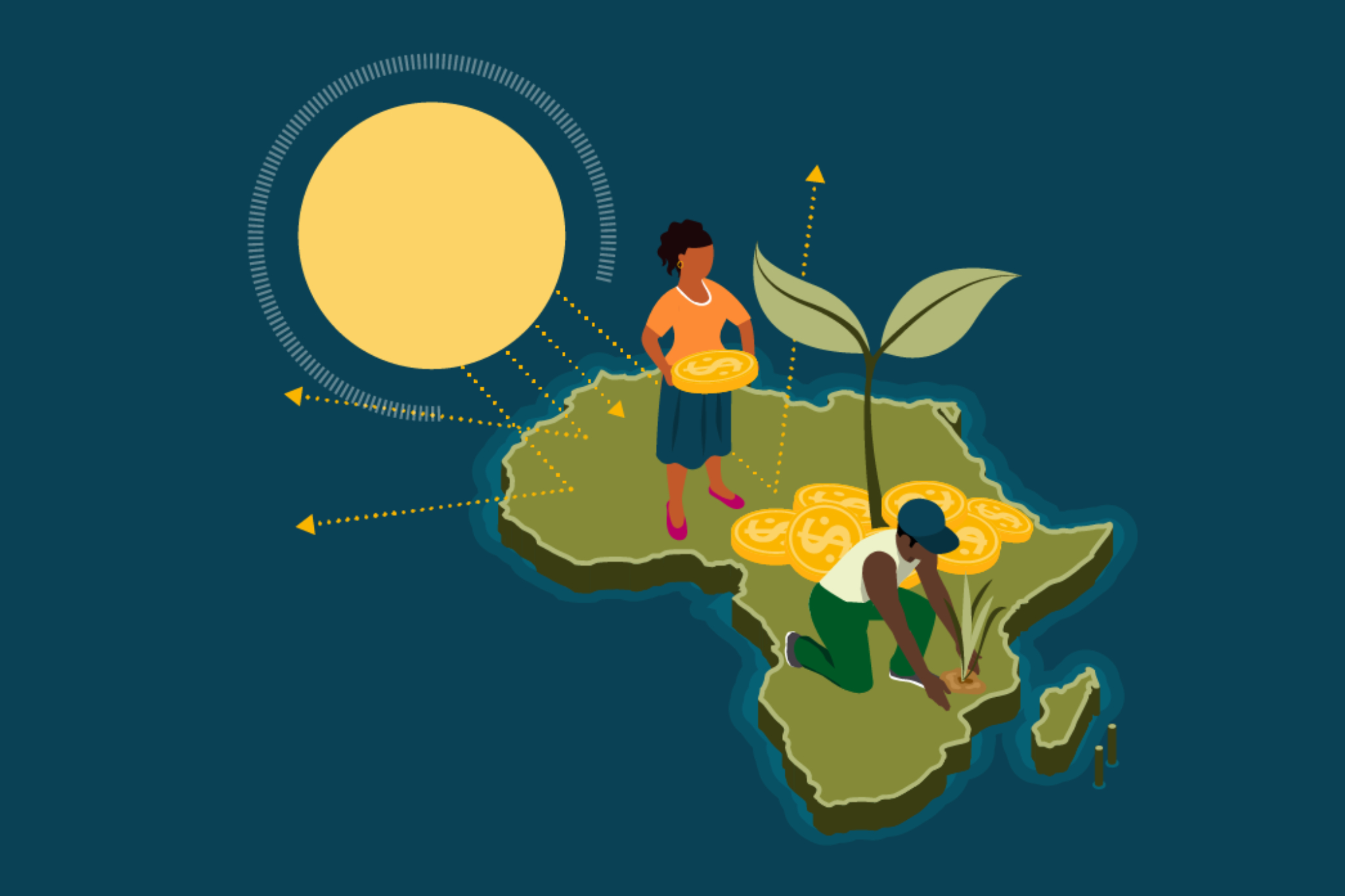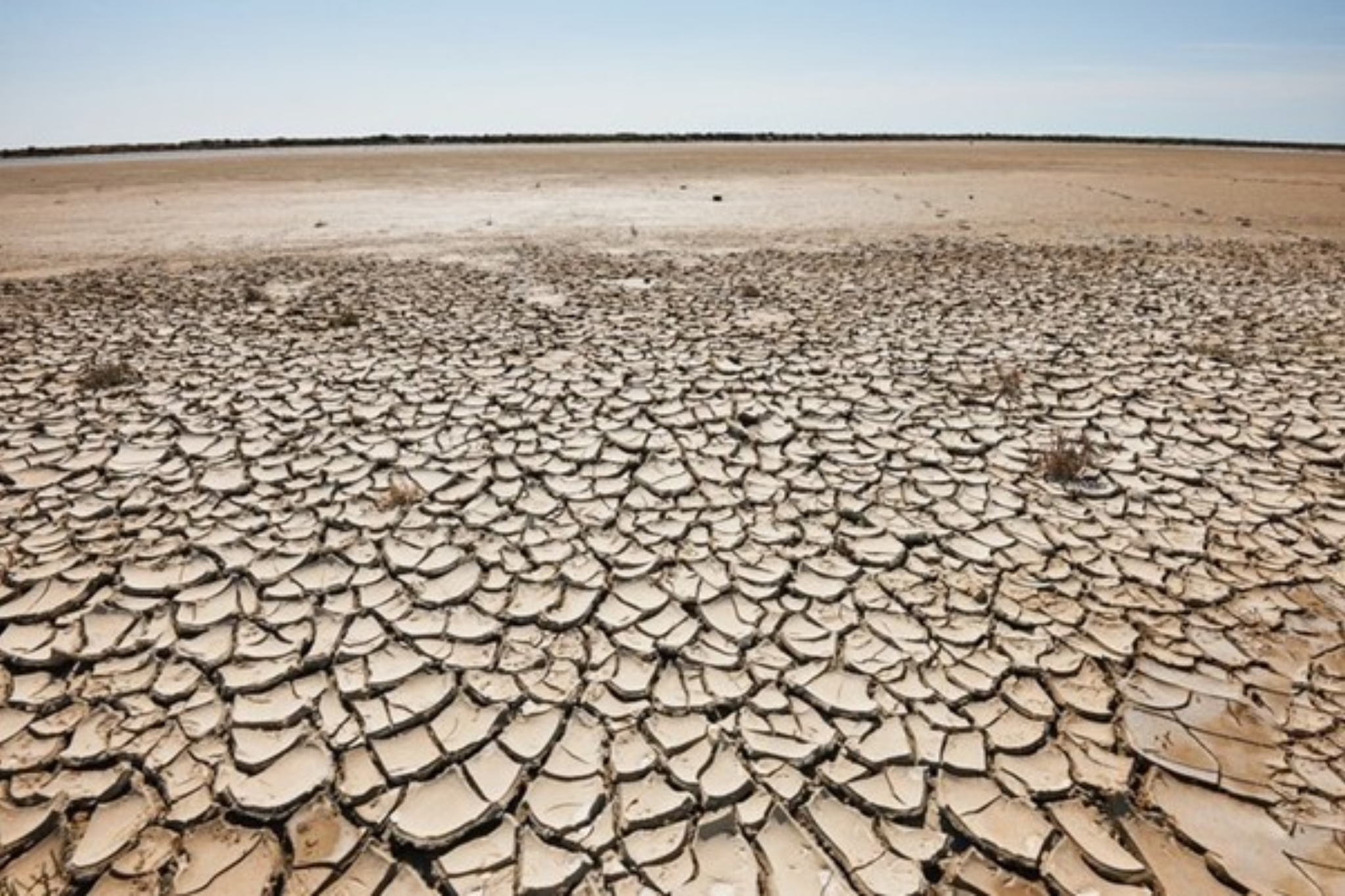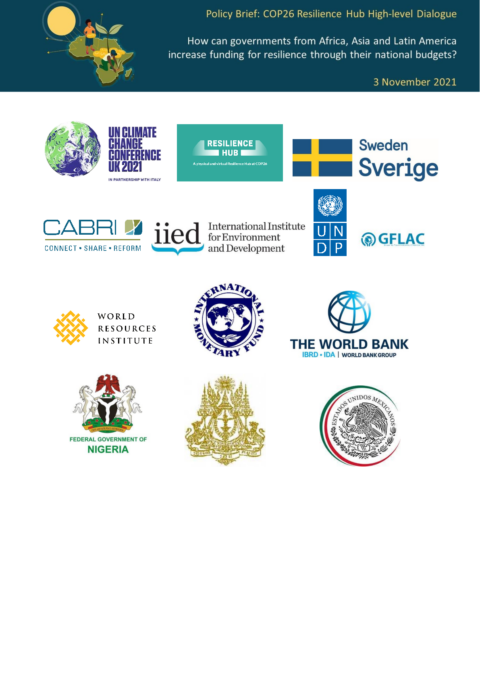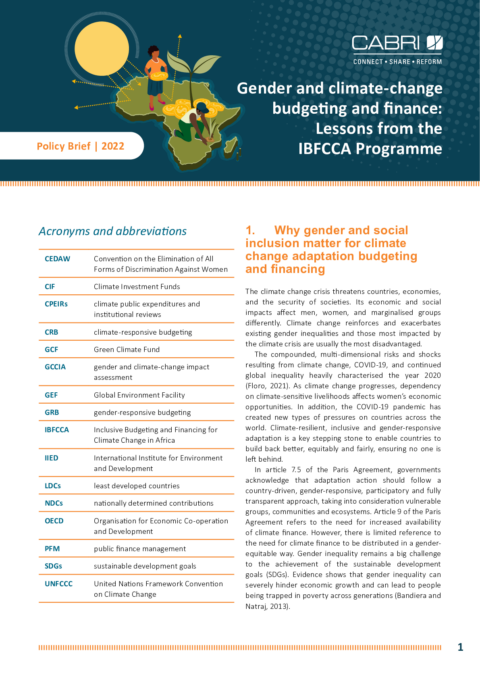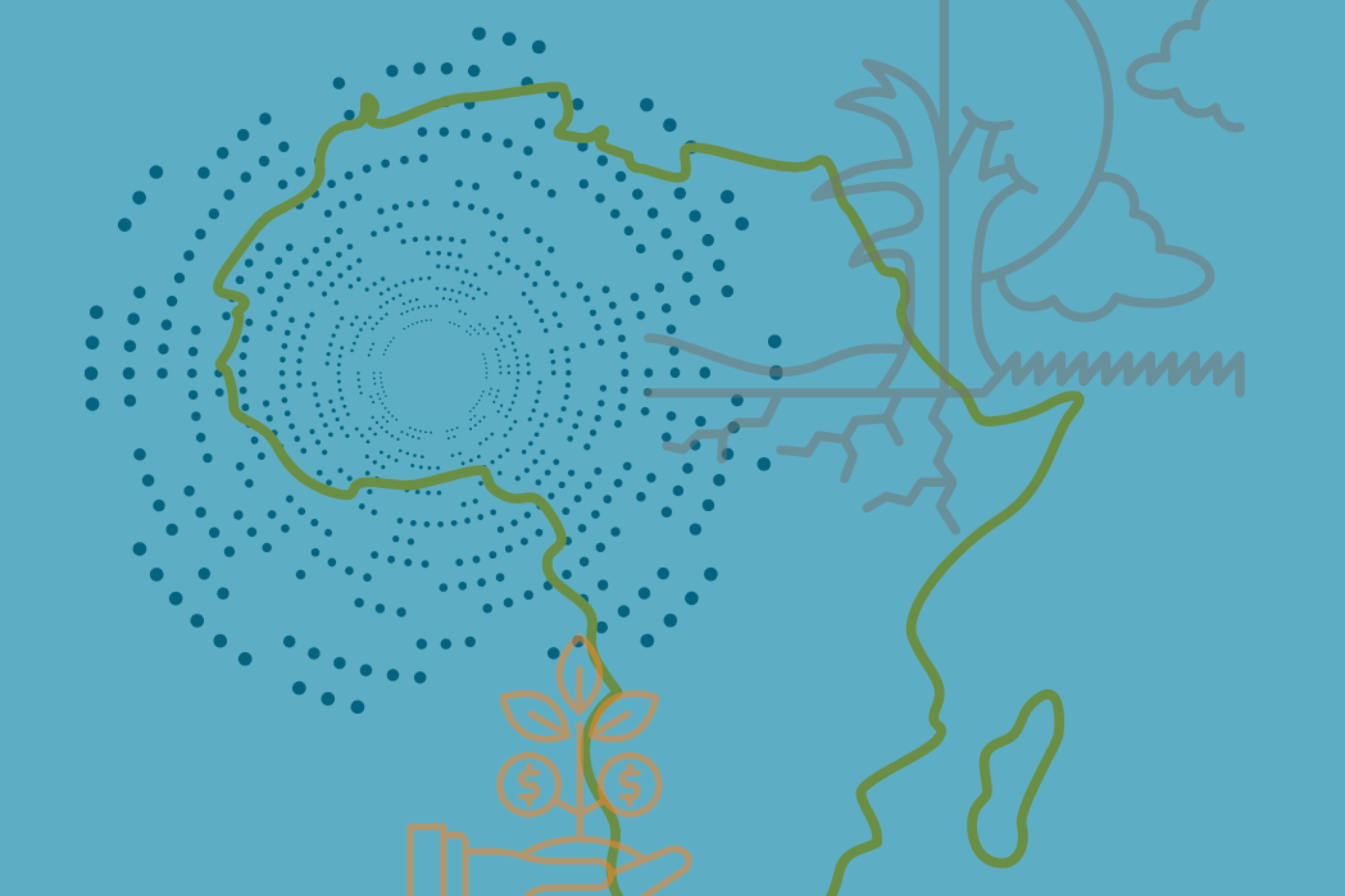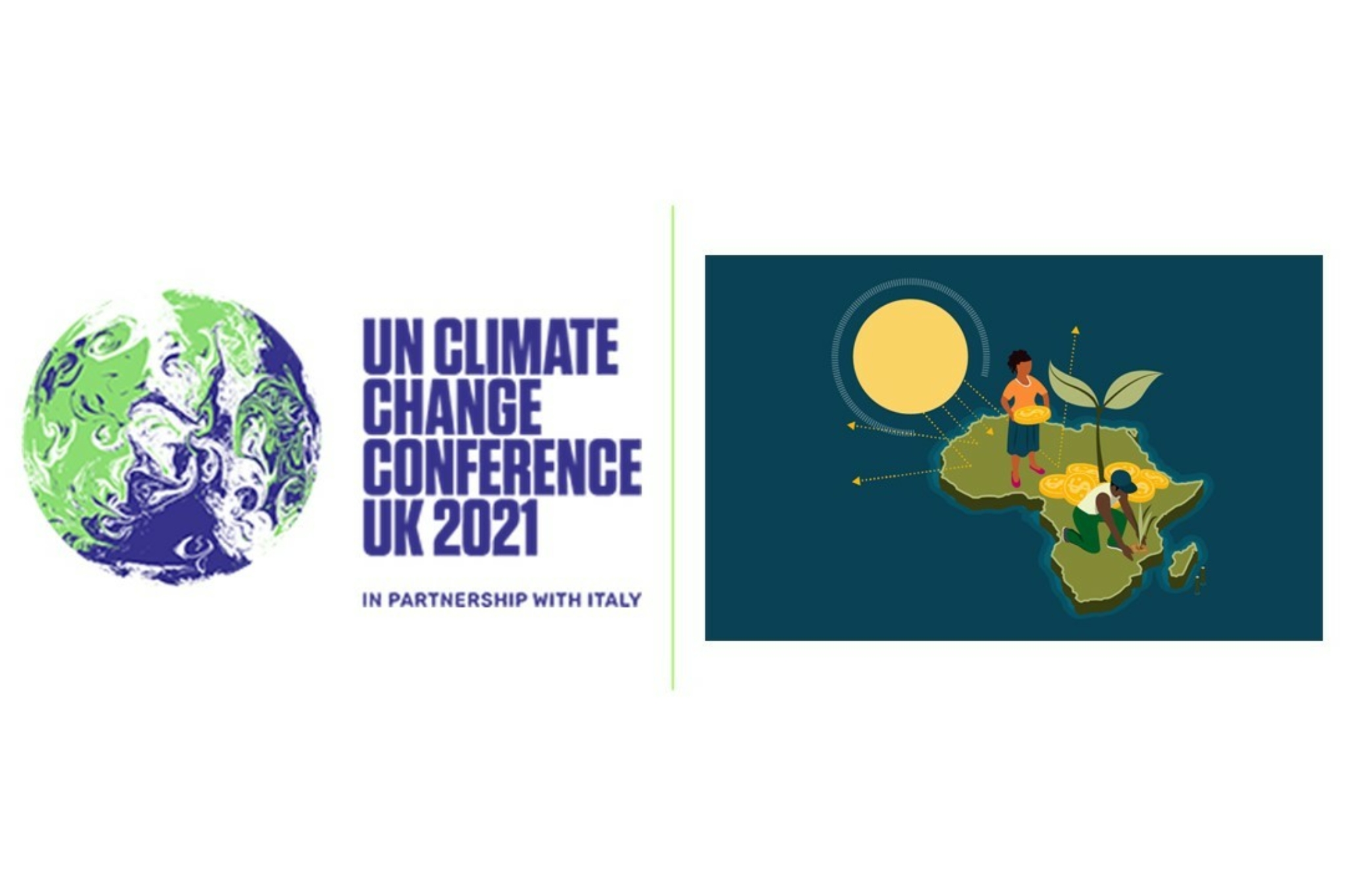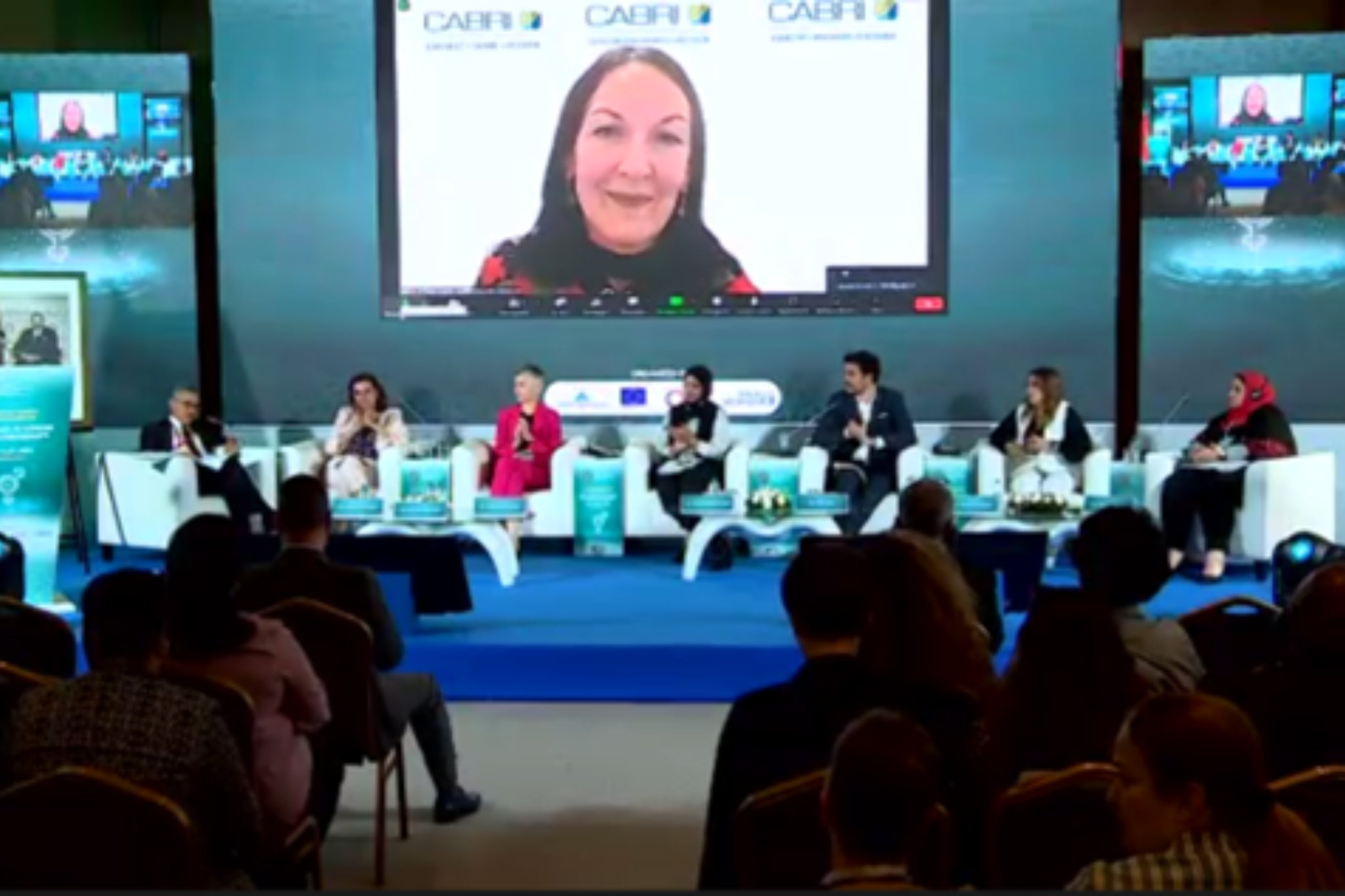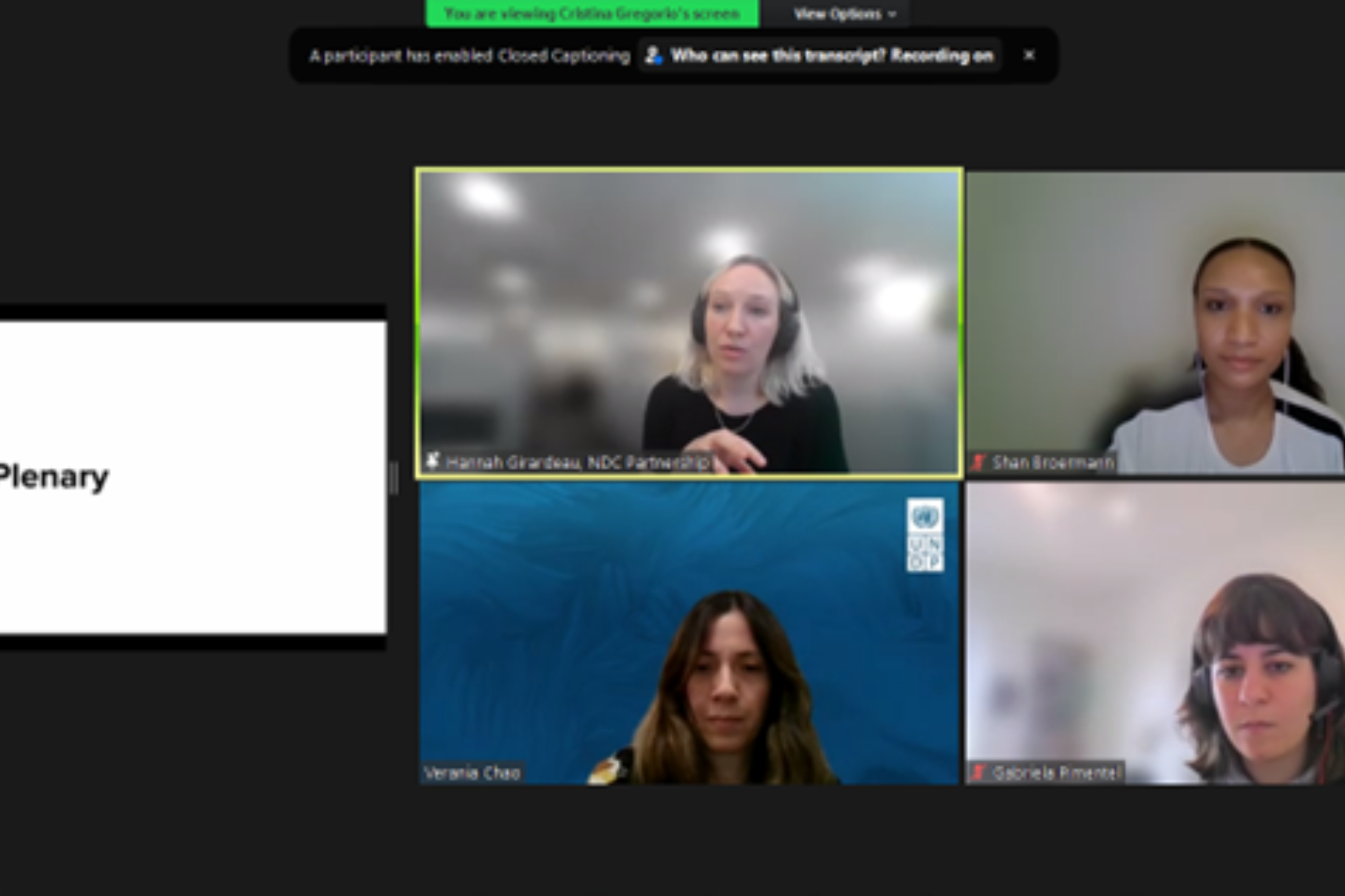The Inclusive Budgeting and Financing for Climate Change in Africa (IBFCCA) is a partnership between CABRI, the International Institute for Environment and Development (IIED), the International Budget Partnership (IBP) and the United Nations Development Programme (UNDP). It is a 5-year program with a one year inception phase, funded by the Swedish International Development Cooperation Agency (Sida). The IBFCCA programme supports stronger links between climate change policy, gender and the budget process. Working closely with ministries of finance across Africa, the program provides support for the mobilisation of the wider national and local budgetary process involving government, legislatures, development partners and civil society. The programme aims to promote climate resilience in Africa and to support African governments to benefit from the opportunities of a just transition to a net zero carbon future. The IBFCCA aims to help strengthen Africa’s negotiating position under the Paris Agreement and the provision of climate finance by development partners.The programme includes carefully sequenced combinations of technical work, capacity building, political engagement, consensus building, engagement piloting and implementation of reforms. This is done across three components: - Component A led by CABRI, facilitates peer learning and exchange (south-south learning) and knowledge management. South-South learning will be facilitated through the policy dialogue approach makes use of research, peer learning and capacity building. - Component B led by UNDP provides technical assistance to countries on climate change integration reforms. The programme is currently supporting Ghana to develop a second Climate Public Expenditures and Institutional Review (CPEIR) and Uganda to reintroduce and expand climate budget tagging reforms. - Component C led by IBP and IIED strengthens oversight, transparency and accountability actors and practices. Accountability landscape assessments are currently underway in Ghana and Uganda. The programme is open to the whole of Africa, including Anglophone, Francophone, Lusophone and Arabic speaking countries. The focus countries selected for the inception phase are Ghana, Uganda, Benin, Mozambique and Kenya. However, the programme will engage a wider group of associate countries which will be invited to participate in the south-south peer learning and exchanges. A tentative list of associate countries includes Burkina Faso, Cape Verde, Central African Republic, Côte d'Ivoire, Ethiopia, The Gambia, Guinea, Guinea-Bissau, Kenya, Lesotho, Liberia, Malawi, Mali, Mauritius, Mozambique, Namibia, Nigeria, Rwanda, Senegal, Seychelles, South Africa and Tanzania. |
Read our press release on the Launch of the Inclusive Budgeting and Financing for Climate Change in Africa (IBFCCA) Programme: A Swedish International Development Cooperation Agency (Sida)-funded initiative

